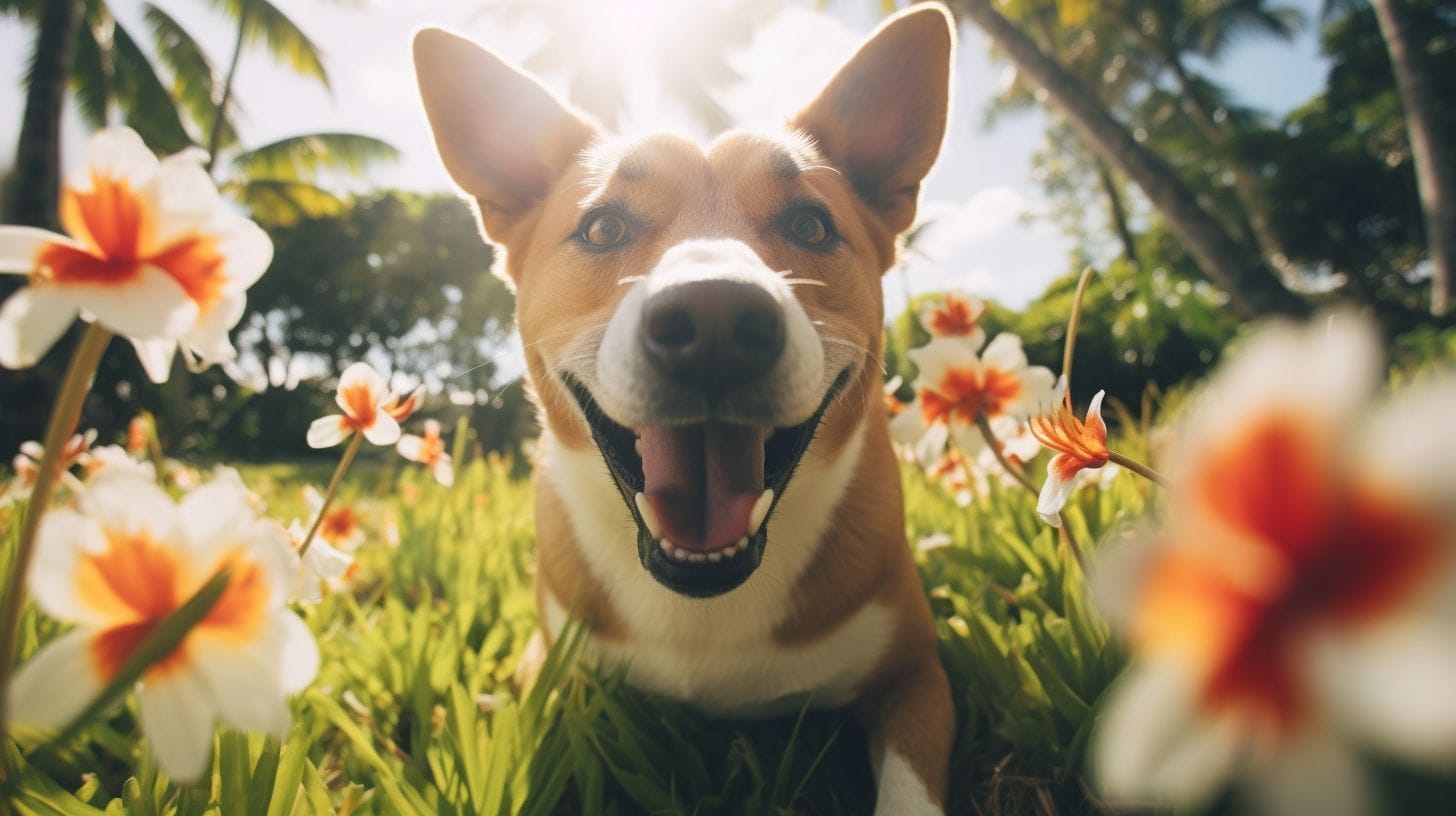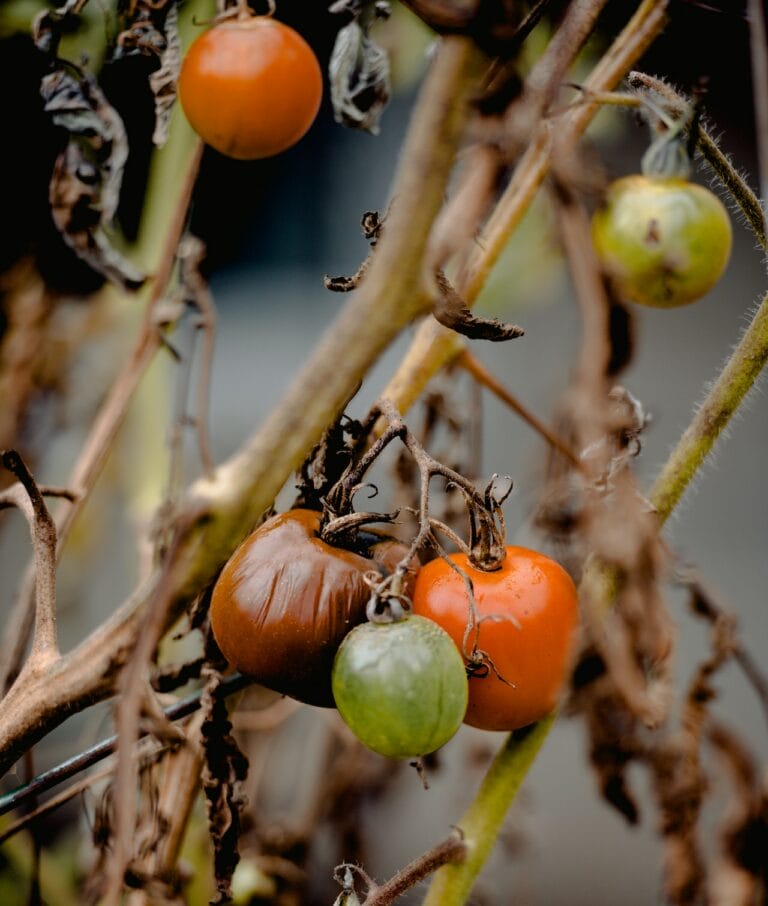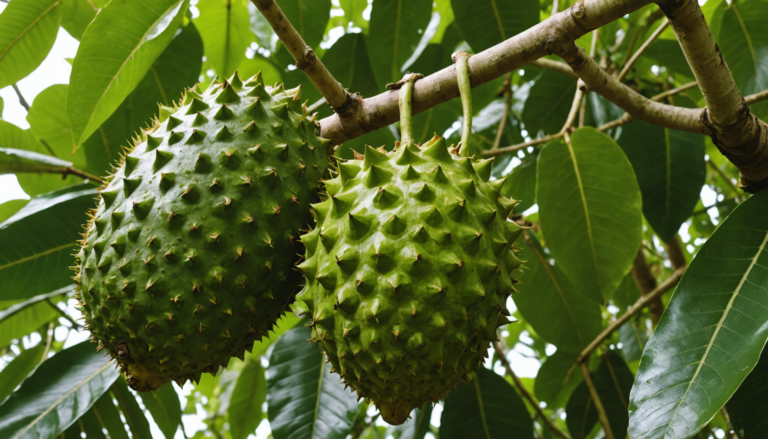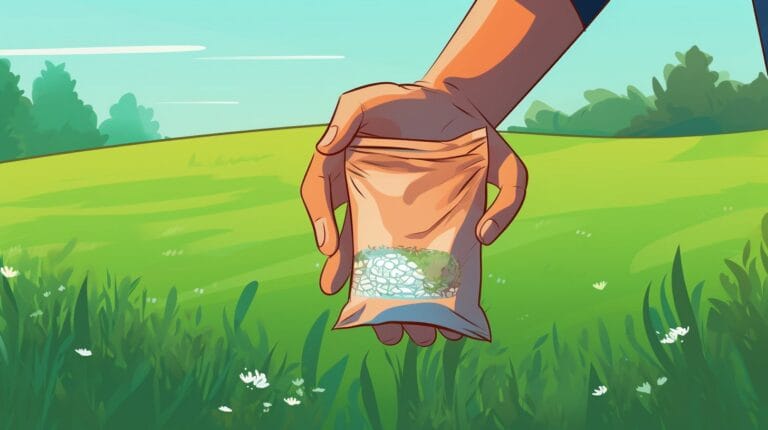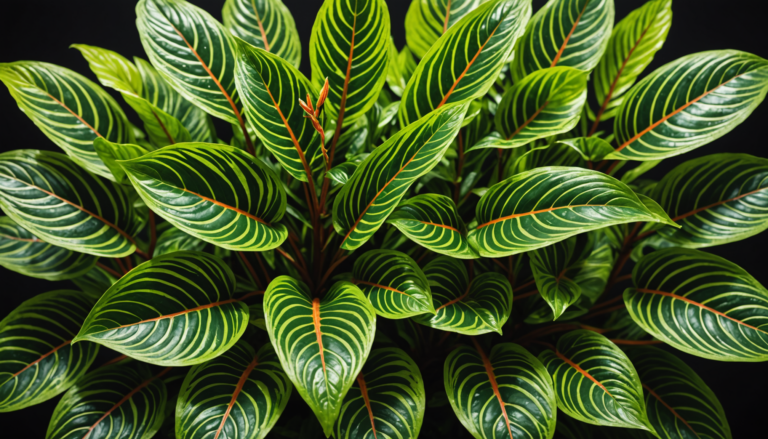For those who love dogs and are dwelling in a lively, tropical paradise, the constant blooming of plumerias is certainly a delightful sight. Their vivid hues and enchanting fragrance lend vitality to your garden. However, beneath their attractive facade may lurk a hidden hazard that people may be unaware of. The question, “Are plumerias toxic to dogs?” is of great importance to pet owners in such settings.
Contrary to their allure, these vibrant flowers threaten our canine companions. If your adorable pet gnaws on parts of the plumeria, such as its leaves or blossoms, it could lead to significant health distress, including vomiting, diarrhea, and, in more severe cases, possibly even convulsions. These adverse effects occur due to saponin, a toxic compound in these plants.
Let’s explore further into these seemingly innocent but potentially dangerous flowers that pose a threat to our four-legged friends.
Key Takeaways
- Plumerias, especially their leaves and flowers, contain a toxic compound called saponin, making them toxic to dogs.
- Ingesting plumeria can lead to symptoms like vomiting, diarrhea, seizures, and skin irritations in dogs.
- If your dog ingests plumeria, immediately remove any remaining plant parts and contact a veterinarian.
- Prevent dogs from eating plumerias by strategically positioning these plants, training your dog, and utilizing natural deterrents.
Understanding Plumeria Plant (Frangipani)
Plumerias, or frangipanis, are attractive flowers native to tropical regions. Their aesthetic beauty and sweet fragrance bewitches many gardening enthusiasts who plant them in their gardens.
These flowers have a milky sap within them, present not merely in the blossoms but also in the leaves and stems. Depending on the given space, plumeria plants can develop into large trees or retain a small bush’s size.
Are Plumerias Poisonous to Dogs?
Yes, plumerias pose a substantial risk to dogs, particularly the leaves and flowers. The plant’s sap contains a toxin known as saponin, which can induce digestive tract irritations and skin rashes in dogs.
Suppose a dog consumes any part of the plumeria plant. In that case, it can manifest symptoms that include vomiting, diarrhea, excessive salivation, and seizures. As a dog owner, it is crucial to consider these potential risks and take immediate measures if your dog consumes plumeria.
Plumeria Flowers and Leaves: Understanding Their Toxicity
Indeed, plumeria leaves and flowers contain a toxin called saponin, which poses a substantial risk to dogs. Should your dog consume these parts of the plant, the aftermath might be severe ill health, including vomiting and diarrhea.
Furthermore, upon skin contact, this plant’s sap could lead to dermatitis. Hence, it is crucial to prevent your furry friend from having any contact with these plants for their safety.
What Occurs If a Dog Ingests Plumeria?
Eating a plumeria plant can wreak havoc on a dog’s health due to saponin, which is toxic to dogs. Symptoms may comprise vomiting, diarrhea, and, in serious cases, seizures.
Possibly, your dog may also appear particularly weak.
In the worst situations, ingesting this plant could be fatal for your dog. Therefore, if you witness your dog consuming plumeria, it’s imperative to act immediately. Promptly taking your pet to the vet is crucial, as this could forestall any more complications and safeguard your furry friend.
Symptoms of Plumeria Poisoning in Dogs
If your dog eats plumeria, they might show the following signs:
- Vomiting.
- Diarrhea.
- Seizures, in severe cases.
- Excessive salivation or extreme thirst.
- Skin irritation.
- Unusual behaviors or signs of weakness.
Actions to Take Upon Your Dog Ingesting Plumeria
Should you suspect that your dog has consumed plumeria, it’s crucial to take the following actions:
- Keep calm and assess the situation.
- Remove any further plumeria plants or flowers from your dog’s vicinity.
- Immediately contact your vet, explaining the situation.
- Watch your dog for any signs of illness.
- Without veterinary guidance, do not aim to induce vomiting.
- Conform to any advice given by the vet.
Seeking Veterinary Help for Plumeria Poisoning
If your dog has ingested plumeria or presents symptoms of plumeria poisoning, seek a vet immediately; care is imperative. Your vet can judge the situation and suggest an appropriate treatment.
Your vet may conduct some tests for potential complications or underlying health problems. These may include blood tests, X-rays, or other diagnostic procedures.
The vet can also monitor your dog’s vitals and, if necessary, administer medications or IV fluids.
Only a professional veterinarian can properly diagnose and treat plumeria poisoning in dogs. Therefore, it’s always better to be cautious and seek medical attention immediately.
Preventing Dogs from Consuming Plumerias
As a precaution, you could take the following steps:
Plant Placement
Ensure to place your plumeria plants strategically outside your dog’s reach. Planting them in areas your dog frequently visits could also help.
Dog Training
Training your dog with commands like “drop it” or “leave it” could deter them from getting close to these toxic plants. Creating a separate area for your dog to play, away from where plumeria plants are located, would be helpful, too.
Using Natural Deterrents
Using natural deterrents like lemons, which dogs find offensive, could ward them off these plants. Creating a separate, fenced garden area to grow your plumerias, ensuring they are unreachable for your dog, could also be an option.
Keep your plumerias pristine and your pups at bay—discover the best manual post hole digger to create a pet-proof garden sanctuary!
Are Plumerias Toxic to Dogs and Should I Be Worried if My Dog Ate Them?
If your dog has eaten plumerias, you might be worried about their safety. Plumerias are commonly found in gardens and are known for their vibrant flowers. However, it’s important to note that plumerias can be toxic to dogs if ingested. Symptoms may include vomiting, diarrhea, and drooling. To ensure your dog’s well-being, contact your veterinarian immediately if you suspect your dog has consumed plumerias. Remember to keep your pets away from any potentially harmful plants and follow growing mushrooms indoors safety tips to create a pet-friendly environment.
Is Plumeria Toxic to Other Pets?
Not only dogs but plumeria also pose a risk to other pets. Upon ingestion, the sap from plumeria plants can cause skin irritation and digestive problems, such as vomiting and diarrhea, in other pets.
If your pet ingests plumerias, seeking immediate veterinary care is important to prevent further complications. The severity of toxicity can vary with the species and size of the pet, as smaller animals are more sensitive to toxins.
Conclusion
Although plumerias are visually appealing and fragrant, they could be fatal for dogs. Their flowers and leaves contain toxins that, on being ingested, could cause vomiting, diarrhea, and even convulsions.
As a preventive measure, placing plumerias where they are unreachable for dogs is vital. If, however, your dog does consume plumeria, seeking immediate veterinary care is crucial. Share this information with other pet owners to protect all our beloved dogs from similar harm.
FAQs
Are plumerias toxic to dogs?
Plumerias are toxic to dogs. The milky sap can cause skin and digestive irritations, leading to vomiting and diarrhea.
What action should I take if my dog ingests a plumeria plant?
If your dog consumes a plumeria, seek medical help immediately. Keep a close eye on your pet and contact the vet, even if your dog isn’t showing signs of distress.
Which parts of a frangipani (plumeria) are harmful to my pet?
All parts of the frangipani (plumeria) plant – leaves, flowers, and sap – are toxic due to certain toxic compounds. Ingestion of these parts can cause severe discomfort and be dangerous for pets.
Can the presence of frangipanis around my house be potentially harmful to pets?
Although frangipanis beautify your garden, they contain toxins and could pose health risks to your pets. Even mild contact with their sap may lead to skin irritations; in severe cases, ingestion could be fatal.
Are there any safe aspects of Plumerias for pets?
Besides their ornamental appeal, there isn’t anything safe about plumerias for pets. Neither their fragrance nor aesthetic beauty can negate the potential health risks they pose to your pets.
How do I keep my dog safe from the harmful effects of Plumerias (frangipanis)?
To ensure your dog’s safety, closely monitor your pet around these plants and ensure the plants remain out of your pet’s reach, especially the leaves.

